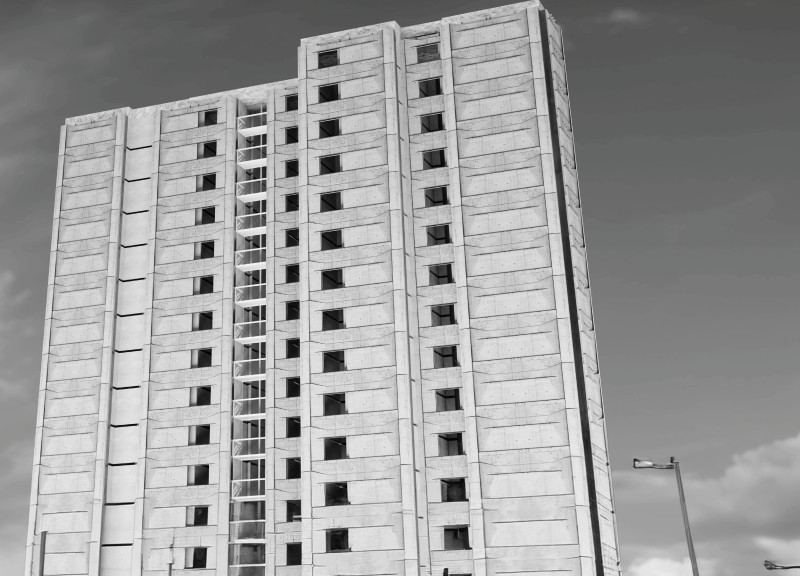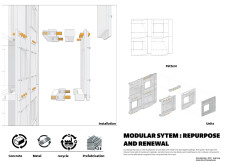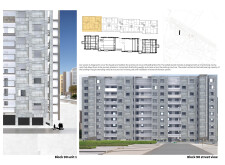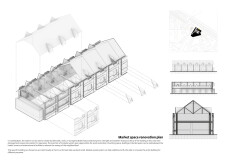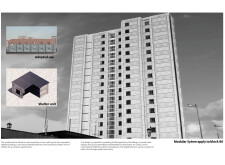5 key facts about this project
### Project Overview
The "Modular System: Repurpose and Renewal" project, developed by Jifii Fang and Yuqi Fang at the University of Pennsylvania, aims to reconfigure existing urban structures using modular construction principles. This initiative focuses on the sustainable use of reclaimed materials, particularly concrete and metal, in response to urban decline and the growing need for innovative housing solutions. The design is aligned with broader themes of urban renewal and resilience, providing a strategic approach to address community housing needs in deteriorating neighborhoods.
### Modular Construction and Community Resilience
The architectural strategy is centered on the creation of prefabricated, interlocking units that can be efficiently deployed in various urban environments. By emphasizing sustainability, the project repurposes concrete and metal sourced from decommissioned buildings, thereby reducing waste and extending material lifecycles. The modular units facilitate flexibility and adaptability, allowing modifications based on community dynamics and evolving requirements. This framework not only serves as a housing solution but also aims to reinvigorate neighborhoods by incorporating essential services that foster community engagement.
### Material Selection and Structural Innovation
The choice of materials plays a critical role in the project's functionality and aesthetic. Reclaimed concrete is utilized for its durability, while lightweight, reclaimed metal enhances structural integrity. The design incorporates prefabricated elements, such as modular blocks and components designed for easy on-site assembly, which contributes to reduced construction time and lower labor costs.
The integration of an innovative interlocking mechanism supports effective weight distribution across the existing structural framework, prioritizing safety in urban contexts. The facade system features a distinctive pattern that promotes natural light penetration while enriching the overall aesthetic. Proposed building typologies range from residential units to commercial spaces, ensuring adaptability to diverse community needs and enhancing urban landscapes.


